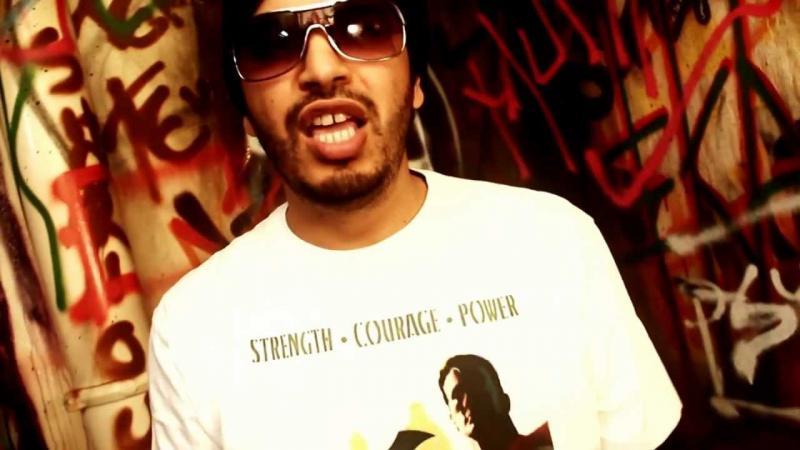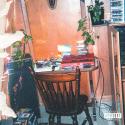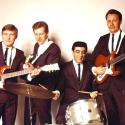A couple of years ago I saw an extraordinary outdoor concert where a rapper called Muslim (great name if you want to be hard to find on Google) performed at the Timitar Festival in Agadir in the South of Morocco to 80,000 delirious fans. The song which everyone knew was “Al Rissala" (The Letter) which called out corruption and ignorance in high places. The Festival acts as a kind of safety valve for dissent.
“It’s a good way of letting off steam,” Reda Allali, the lead singer of Moroccan rockers Hoba Hoba Spirit, told me backstage. The festival was “a step in the right direction anyway – although there are many steps ahead”. Allali takes some delight in the fact that in North Africa it’s relatively easy to create waves, scandals and infamy. “In London now, unlike in the Seventies, everything seems to be permitted, so nothing can shock people,” he continues by way of comparison.
But if there is a game to be played, Mobydick, perhaps the most popular rapper in the country with millions of hits for his sometimes outrageous videos, doesn't want to play it, although he misses out on the considerable fees such an appearance would generate.
For Mobydick (real name Taleb Younes), “Muslim is too superficial.” So he tells me when I meet him in a hotel bar in Rabat earlier this month. If he wasn’t, Muslim would not have been booked for the festival. While festivals like Timitar are an outlet for some rebel voices, there is a limit to what is acceptable and Mobydick crosses the line.
In North Africa it’s relatively easy to create waves, scandals and infamy
Mobydick (who is also called Lmoutchou) survives by selling T-shirts for his brand and putting on small concerts. “Freedom of expression has improved in the last few years,” he says. He was brought up in Rabat and his Berber parents “are conservative. We get on fine, but they do not want to listen to my rap. It’s young people’s music anyway.”
What gave a lift to his career was an amazing and funny video he did when Osama Bin Ladin was killed (see below), in which he dressed up as the arch terrorist. The video made the Al Qaida types look dumb while at the same time insulting Obama, the CIA and Hillary Clinton. In his latest intervention he was commissioned by the charity FATE (Families Against Extremism and Terrorism) to provide a soundtrack for a more sombre video called We Are Tomorrow (Disclosure: I have also advised for this project.)
On the release of the video (see below), translated into several languages and given a considerable boost by his participation, he commented: “I am deeply convinced that culture, art and music brought by a generation of young Arab artists is the best weapon to counter the discourse and actions of Daesh. In addition to all the horrors they commit, the terror they sow allows them to distort the image of Arabs worldwide. It’s time to fight against hate by highlighting the creative, young and hopeful generation that we all are.” FATE have convened a conference in Tunis this week which will bring together NGOs and families who have been affected by children being radicalised.
He says he’s not that impressed by “Hollywood” artists like Kanye West but admits to teenage fandom of Wu-Tang Clan. No raps or videos with semi-naked girls, big cars and guns? “We have to invent a new tradition. I prefer to rap about things that affect me personally, or about everyday life here.”
Another of his most celebrated efforts was “Ne Touche Pas Mon Pays” (Don’t Touch My Country) which was a response to extremists placing explosives in Casablanca. Further activism came from the February 20th Movement which led to demonstrations in the streets at the time of the Arab Spring. He rapped about a notorious prison Tazmamant and savagely attacked Abbas El Fassi, the Prime Minister of Morocco at the time, dubbing him "Abbas the Nazi". More recent activist videos give voice to a strong belief in freedom of expression; a recent one argues that women should wear mini-skirts or hijabs, whichever they prefer. Any pro-gay raps in the offing? “I have a friend who is gay. A good friend. But right now I am more focused on women’s rights. Maybe next year.“ He also has a great love of comics – his logo is a homage to Superman's and one of his best-known hits used images from Japanese manga, which he says is big in Morocco.
Some very sensitive issues he hasn’t taken on include the hot topic of the disputed territory of Sahara in the south of Morocco. “It’s very complex” is all he will say. In a country where I’ve met people jailed for dissent, does he feel himself in any danger? “Once you are famous, you have some immunity. And things have opened up in the last few years. It’s possible to talk about things you couldn’t have done years ago. But to be authentic, you have to make sacrifices.”















Add comment